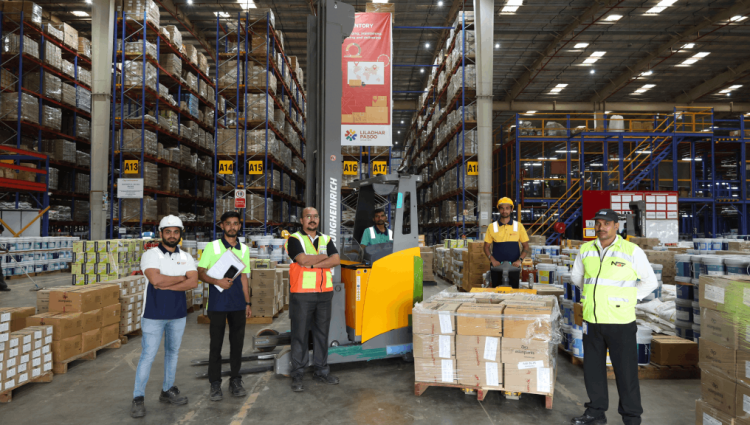In today’s globalised economy, logistics and supply chain management play a crucial role in ensuring the smooth movement of products from manufacturers to consumers. Efficient logistics and supply chain management is essential for companies to stay competitive, minimise costs, and meet customer demands. However, not all supply chains are the same. Different industries and businesses use various types of supply chains, each with unique characteristics and management strategies. Understanding the different types of supply chains and their management strategies can help businesses optimize their operations, reduce costs, and improve customer satisfaction.
1. Traditional Supply Chain
The traditional supply chain is the most common and widely recognized model in logistics and supply chain management. It consists of a linear flow of products from suppliers to manufacturers, then to distributors, retailers, and finally to customers. This type of supply chain is particularly prevalent in industries like manufacturing, retail, and consumer goods.
Supply Chain Strategy
- Demand Forecasting: Accurate demand forecasting is essential in logistics supply chain management to avoid overproduction or stockouts.
- Inventory Management: Techniques like Just-In-Time (JIT) or Economic Order Quantity (EOQ) are key in maintaining optimal inventory levels, crucial for effective supply chain logistics.
- Supplier Relationship Management: Strong relationships with suppliers ensure a steady flow of materials, reducing the risk of supply disruptions.
- Logistics Management: Efficient Transportation Services, Warehousing Services, and Overall Logistics Solutions are vital in minimising delivery times and costs, a key focus in logistics and supply chain management.
2. Agile Supply Chain
The agile supply chain is designed for flexibility and quick response to changes in the market or demand. This model is commonly used in industries with high demand variability, such as fashion and electronics, where product lifecycles are short and customer preferences change rapidly.
Supply Chain Strategy
- Real-Time Data Analytics: In supply chain management, leveraging real-time data to monitor market trends helps make quick adjustments.
- Collaborative Partnerships: Working closely with suppliers and partners enables faster response times, a key aspect of effective supply chain logistics.
- Modular Product Design: Quick customization and adaptation to changing demands are supported by modular product designs.
- Dynamic Inventory Systems: Flexible inventory systems that adjust based on real-time demand ensure product availability when needed.
3. Lean Supply Chain
The lean supply chain focuses on efficiency by eliminating waste and maximizing value for the customer. This model is closely associated with Lean Manufacturing principles, aiming to reduce non-value-adding activities. It is commonly used in industries like automotive manufacturing, where efficiency and cost reduction are critical.
Supply Chain Strategy
- Value Stream Mapping: Identifying and eliminating wasteful processes improves efficiency, a cornerstone of logistics supply chain management.
- Continuous Improvement: Practices like Kaizen promote ongoing enhancements in logistics management and overall supply chain logistics.
- Supplier Integration: Close relationships with suppliers streamline processes and reduce lead times.
- Just-In-Time Production: Producing goods only when needed reduces excess inventory, a key focus in supply chain management.
4. Green Supply Chain
With growing concerns about environmental sustainability, the green supply chain has gained prominence. This type of supply chain focuses on minimising the environmental impact of operations, from sourcing raw materials to delivering the final product to consumers.
Supply Chain Strategy
- Sustainable Sourcing: Procuring materials from environmentally friendly suppliers is a critical aspect of logistics and supply chain management.
- Energy Efficiency: Implementing energy-efficient processes in production, Transportation Services, and Warehousing Services helps reduce carbon footprints, a vital part of supply chain logistics.
- Waste Reduction: Recycling and waste management practices minimise waste throughout the logistics supply chain management process.
- Eco-Friendly Packaging: Using biodegradable or recyclable packaging materials supports Green Logistics Management.
5. Digital Supply Chain
The digital supply chain leverages advanced technologies like the Internet of Things (IoT), Artificial Intelligence (AI), and blockchain to enhance visibility, efficiency, and coordination across the supply chain. This type of supply chain is becoming increasingly popular due to its ability to optimise operations and improve decision-making.
Supply Chain Strategy
- IoT Integration: IoT devices are used to monitor and track products, providing real-time data crucial for supply chain management.
- AI-Powered Analytics: AI helps in predictive analytics, demand forecasting, and optimising supply chain processes, enhancing logistics management.
- Blockchain Technology: Implementing blockchain for transparent and secure transaction tracking is becoming a standard in logistics and supply chain management.
- Automation: Robotics and automation streamline production, warehousing services, and distribution, integral components of supply chain logistics.
6. Global Supply Chain
A global supply chain spans multiple countries and continents, involving a complex network of suppliers, manufacturers, and distributors. This type of supply chain is common in industries like electronics, automotive, and apparel, where components and materials are sourced from different parts of the world.
Supply Chain Strategy
- Risk Management: Identifying and mitigating risks such as geopolitical instability, tariffs, and natural disasters is crucial in global logistics and supply chain management.
- Cross-Cultural Collaboration: Managing cultural differences and communication barriers is essential for effective global supply chain logistics.
- Compliance and Regulations: Adhering to international trade regulations and standards is a key component of global logistics management.
- Efficient Logistics: Coordinating international logistics to optimise shipping routes and reduce lead times is a primary focus in global logistics supply chain management.
7. Service-Oriented Supply Chain
Unlike traditional supply chains focused on physical products, service-oriented supply chains manage the flow of services. This type of supply chain is prevalent in sectors like healthcare, finance, and IT services, where delivering timely and efficient services is crucial.
Supply Chain Strategy
- Capacity Planning: Ensuring that resources are available to meet service demand is a key focus in logistics and supply chain management.
- Customer Relationship Management (CRM): CRM systems manage client interactions and improve service delivery, an important aspect of logistics supply chain management.
- Quality Management: Implementing standards to ensure consistent service quality is essential in service-oriented supply chain logistics.
- Service Level Agreements (SLAs): Establishing SLAs with customers defines expectations and performance metrics in service-oriented logistics management.
Understanding the different types of supply chains and their respective management strategies is crucial for businesses to optimize operations and remain competitive. Whether it’s the flexibility of an agile supply chain, the efficiency of a lean supply chain, or the sustainability focus of a green supply chain, each model offers unique benefits and challenges. Adopting the right supply chain strategy aligned with business needs not only enhances operational efficiency but also contributes to long-term success in the dynamic global marketplace. Efficient logistics and supply chain management is the key to navigating these challenges and achieving supply chain goals.
To conclude, understanding the various types of supply chains and their management strategies is vital for businesses aiming to stay competitive in today’s dynamic global marketplace. By aligning their supply chain strategies with business objectives, companies can enhance operational efficiency, reduce costs, and improve customer satisfaction.
For businesses looking to optimize their supply chain operations, LP Logiscience offers a comprehensive suite of logistics and supply chain management services tailored to meet the unique needs of different industries. With a focus on innovation, sustainability, and efficiency, LP Logiscience is committed to helping businesses navigate the complexities of supply chain management, ensuring seamless operations and long-term success.






